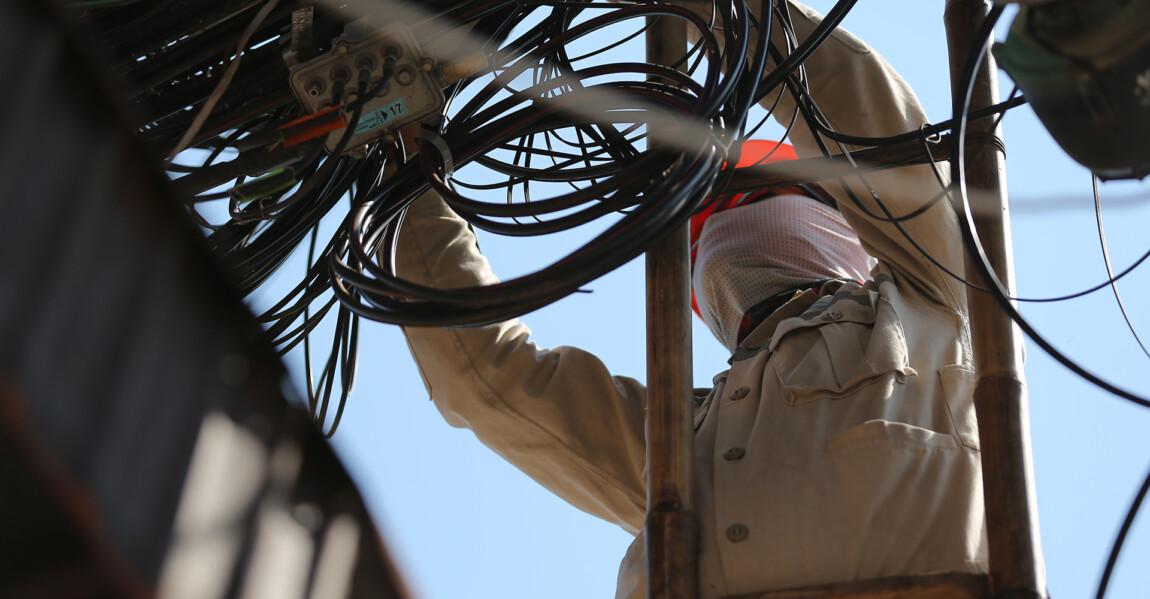In telecommunications, EU4Digital facilitates access to secure and high-speed connectivity at affordable prices for citizens and businesses in the Eastern partner countries. To achieve these goals, the EU4Digital Telecom Rules thematic area supports three main goals:
- Reducing roaming prices – facilitating efforts to sign and implement roaming agreements among the Eastern partner countries and, where appropriate, with the EU. This would help to reduce prices that citizens pay for roaming mobile services (SMS, calls and internet) when travelling to other Eastern partner countries and, where relevant, to the EU.
- Developing 5G connectivity – facilitating the development of secure 5G connectivity based on the EU toolbox for 5G security, as well as 5G private networks based on EU best practices.
- Accessing competitive broadband internet – promoting and monitoring affordable access to high-speed broadband internet services in line with a coordinated EU approach and best practices. Also, supporting local National Regulatory Authorities (NRAs) in performing broadband market analysis to ensure that markets offer competitive broadband internet services to all citizens and businesses at affordable prices.

EU citizens travelling to other EU countries ‘roam like at home’, meaning they don’t have to pay any additional charges to use their mobile phone. Under a regional roaming agreement facilitated by EU4Digital this would not be the same for EaP citizens; however, such an agreement would ensure a substantial lowering of applicable roaming prices among the five Eastern partner countries. This would allow mobile communications networks’ roaming customers to enjoy more affordable services while roaming in the Eastern partner countries. Based on the latest findings of the EU4Digital roaming study (2019), an average price decrease of over 80% is expected.

Yes, the regional roaming agreement that EU4Digital is facilitating will be just among the five Eastern partner countries. However, the EU and Eastern partner government ministers have agreed to explore the possibility of a common international roaming space, including the economically sustainable reduction of roaming tariffs between the Eastern partner countries and the EU Member States. For instance, in May 2023 telecom operators from Moldova and the European Union signed a joint declaration to lower roaming charges for businesses and citizens travelling between the two areas. Previously, in April 2022, European and Ukrainian operators signed an agreement to provide affordable or free roaming and international calls to help Ukrainian refugees stay connected. That agreement was extended for another year in July 2023.

The Eastern Partnership regional roaming agreement is expected to be signed by the end of 2023. In this case it would take legal effect in 2026, allowing for a transition period of two years. This transition period is needed for the Eastern partner countries to implement the requirements of the roaming agreement, as well as for mobile operators to have sufficient time for adjustments.

Yes 5G networks are secure – but some actions have to be taken to ensure all necessary security measures. For this purpose, the EU4Digital Telecom Rules thematic area is supporting Eastern partner countries to develop secure 5G connectivity based on EU best practices, otherwise known as the ‘EU toolbox for 5G security’. This toolbox provides guidance to countries, network operators and other stakeholders on the security risks and potential vulnerabilities of 5G networks, as well as best practices and mitigation measures to address the risks.

National regulatory authorities (NRAs) are bodies under national laws and are entrusted with performing regulatory functions in the field of electronic communications. These government authorities ensure a balance between promoting efficient competition, investment and consumer interests with the development of electronic communications markets, services and networks in mind. Thus, regulators should be legally distinct and functionally separate from any other bodies that may levy undue influence, because independence and impartial decision-making are key elements of a well-functioning and over-arching regulatory setup.

Connectivity is one of the key policy areas when aiming to achieve digital improvement in the Eastern Partnership region, as set forth in the Joint Communication for Eastern Partnership policy beyond 2020. Without access to affordable internet, Eastern partner countries’ citizens and businesses cannot realise their digital or digitally-supported ambitions.
In Phase II of EU4Digital, one of the first steps towards better connectivity in the EaP region has been focused on understanding the state of play in terms of the availability of fixed and mobile broadband internet access services in the Eastern partner countries. For instance, what proportion of the population has access to high-speed internet? Also, to promote high-speed and secure connectivity, the EU4Digital Telecom Rules thematic area prepared a report analysing best practices from five EU Member States. The Eastern partner countries may apply these experiences when monitoring broadband market developments and implementing broadband policies to be fit for their national needs.

To achieve better connectivity, it is essential to ensure that electronic communications markets offer competitive services to all citizens and businesses. For this purpose, the EU4Digital Telecom Rules thematic area will be supporting the Eastern partner countries’ national regulatory authorities (NRAs) in performing analysis of electronic communications markets related to broadband. Based on the findings, NRAs may identify competitive shortcomings and introduce appropriate regulative measures to address any issues, such as insufficiency of competition, limited choice of providers or services, high prices and low availability of networks.




